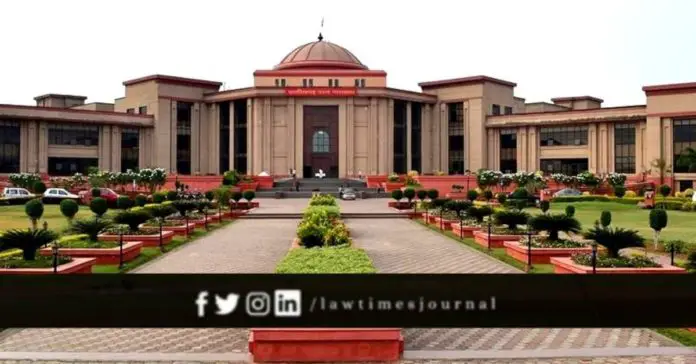
Case: Bhagwat Joshi v. State of Chhattisgarh
Citation: Cr.M.P.No.1395 of 2020
Coram: Hon’ble Shri Justice Sanjay K. Agarwal
Last month, the Chhattisgarh HC noted that, while granting bail, the condition imposed should not be stringent and should be reasonable, otherwise, it would denial of bail and the denial and deprivation of personal liberty of the accused would amount to an infringement of the constitutional right guaranteed under Article 21 of the Constitution of India.
The Bench of Justice Sanjay K. Agrawal further quoted Justice V.R. Krishna Iyer, who, while speaking for the Supreme Court in the case of Babu Singh & others v. The State of U.P. [(1978) 1 SCC 579] had said,
“The delicate light of the law favours release unless countered by the negative criteria necessitating that course. The corrective instinct of the law plays upon release orders by strapping on to them protective and curative conditions. Heavy bail from poor men is obviously wrong. Poverty is society’s malady and sympathy, not sternness, is the judicial response.”
FACTS
The petitioner before the Court, an accused standing trial for offence under Section 420/34 of the IPC. He made an application under Section 437 of the CrPC for grant of bail and eventually that application was granted by the learned Magistrate with a condition of furnishing a bank guarantee of ₹ 2,00,000/.
On revision being preferred by the petitioner, First Additional Sessions Judge, Balod partly allowed the revision and reduced the amount of bank guarantee from ₹ 2,00,000 to ₹ 1,00,000 and also directed for furnishing bail bond of ₹ 10,000/ in addition to bank guarantee.
By questioning the legality of the order passed by Additional Sessions Judge directed the petitioner to furnish a bank guarantee of one lakh, an instant petition under Section 482 of the CrPC.
OBSERVATION OF THE COURT
The Court observed that it is well-settled law that while exercising jurisdiction under Section 437/439 of the CrPC, it is the duty of the Court to see that condition for grant of bail should not be arbitrary or capricious, it should be just and reasonable and it cannot insist the accused to give cash security or to provide local surety.
The Court further said,
“An essential requirement in the imposition of any condition is that it should result in minimum interference with the personal liberty of accused and rights of police to investigate the case. A balance should be maintained between the personal liberty of the accused and investigational right of police.”
The Court also relied on Apex Court’s ruling in the case of Moti Ram and others v. State of Madhya Pradesh [(1978) 4 SCC 47] wherein the Court had deprecated the practice of demanding heavy sums by way of bail.
Coming to the present facts of the case, the Court stated,
“It is quite vivid that in the instant case, though the accused had been admitted to the privilege of bail under Section 437 of the CrPC and he is only a small agriculturist, yet stringent and onerous condition of furnishing bank guarantee of ₹ 2,00,000/- was imposed by the trial Magistrate though that has partly been modified by the revisional Court from ₹ 2,00,000/ to ₹ 1,00,000/, but still condition of furnishing bank guarantee of ₹ 1,00,000/ is stringent and excessively onerous condition, which cannot be said to be a reasonable condition for grant of bail in the light of aforesaid mandate of the Supreme Court (rulings).”
Therefore, the condition imposing a bank guarantee of ₹ 1,00,000/¬ was thereby set-aside and the accused was directed to be released forthwith on bail on a furnishing bail bond of ₹ 20,000/¬ to the satisfaction of the Trial Court.








